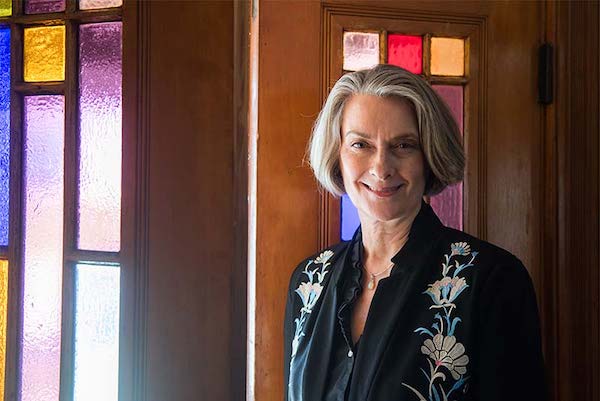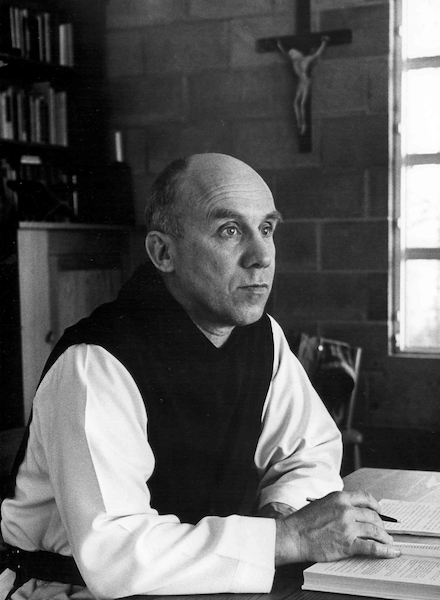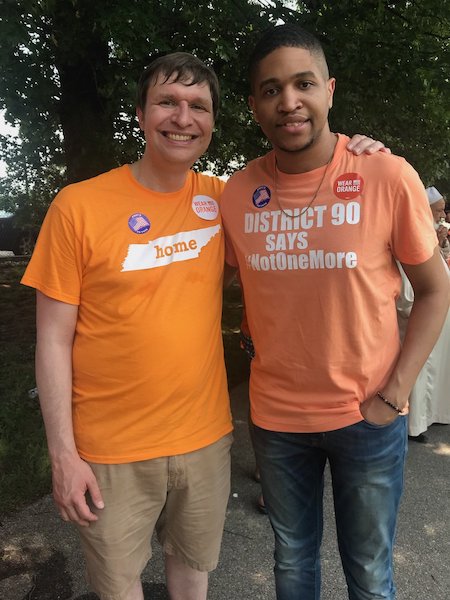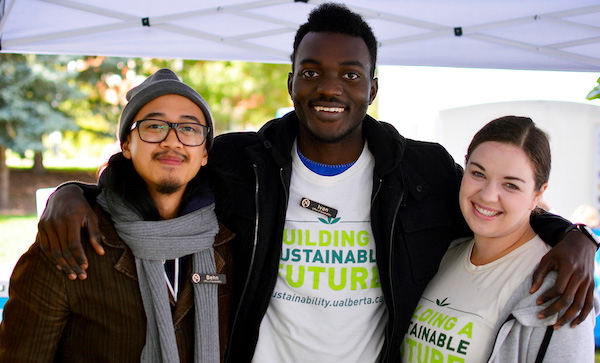Texts: John 15:9-17; Acts 10:44-48 Preached at First Baptist Memphis, May 9, 2021
What does it mean to be a friend? Who are your dear friends? Is Jesus your friend? And if so, how do you participate in that friendship?
One of my dearest friends is Quaker. Quakers took this concept of being friends with Jesus very seriously. They call themselves “Friends.” Originally, they called themselves “Children of the Light,” but then they changed their name to “Friends of the Truth,” or merely Friends depicting their relationship with Jesus as noted in John’s Gospel today. They became known as Quakers later by those who poked fun at them for “quaking” in the spirit, but as Quakers often do, they took the insult and transformed it into a badge of honor.
Celtic Christianity had the term Anam Cara meaning Soul Friend-a person who acted as a teacher, companion, or spiritual guide. This person was called an anam cara because he or she was embodying the role of Jesus.
Dana Robert writes about friendship in her book Faithful Friendships: Embracing Diversity in Christian Community. She states:
“In most cultures, the idea of friendship is a powerful statement of relational identity. In Batak culture in Indonesia, for example, it is said that the loss of a friend is worse than the loss of one’s mother. Traditional Russian culture assumes it is better to have many friends than much money. In Confucian tradition, friendship is one of the basic relationships that undergirds society. For American Christians, being friends with Jesus tends to be personal. . . . Jesus is my friend. He carries my burdens.

But a cross-cultural perspective on Jesus as friend says a lot about the meaning of community. For friendship always goes both ways. It requires mutuality. It involves give and take. . . . Since Jesus is holding hands with the world, so to speak, then intimacy with Jesus extends far beyond personal needs. To befriend Jesus means carrying in fellowship the responsibilities of friendship that he carried. . .
In the context of worldwide community, being friends with Jesus is hard work. For when followers of Jesus walk beside him, he leads them in directions they would rather not go, into neighborhoods they would rather avoid, and to meet other friends of his they might not normally know. As the Scriptures and history show, to be a friend of Jesus means loving others just as he does.”
Our Scripture texts from Acts 10 and John 15 are the lectionary readings for the day, and they are fascinating as we think about them in the context of friendship. Look first at the text in Acts 10:44-48. Peter and his group from Jerusalem show up to the house of Cornelius and a bunch of Gentiles. It took work just to get Peter and his following to come. They had been trying to establish law and order from Jerusalem when a couple table-waiters from the Hellenistic Jewish community started following the Spirit around without the sanctioned input of Peter and friends.

Before you know it, these table-waiters are enacting the very promise given by Jesus in the first chapter of Acts for the promise of the Spirit to move beyond Jerusalem to Judaea to Samaria and to the ends of the earth. These table waiters followed the spirit right into Samaria and then the embodiment of the entire world as they would have perceived the Ethiopian eunuch who was cut off quite literally from the faith community until Philip led by the Spirit showed up and baptized him.
But Peter and the group from Jerusalem were not yet ready for such an unauthorized Spirit to be set loose on the world. They wanted control over it. They wanted to sanction it and give it order. But they could not.
Three visions come down to Peter telling him to get up, kill, and eat. Peter says, “Certainly not. Nothing profane and unclean has ever entered my body.” Finally, a frustrated Spirit confronts Peter a third time, and the Greek emphasizes, it is snatched away as Peter is left to ponder what it meant when Cornelius’ household shows up asking Peter to come join them.
Only when Peter and his cohort from Jerusalem realize the Spirit has already broken beyond the bounds and come upon the house of Cornelius are they converted into understanding the kingdom of God is at hand and yet, beyond their control.
It moves in and out of the houses of all from Jew to Gentile from conservative too moderate too liberal. The Spirit cannot be stopped from moving beyond the human borders and walls that have been crafted. This includes the places and people with whom many of us are most uncomfortable.
“The Spirit cannot be stopped from moving beyond the human borders and walls that have been crafted. This includes the places and people with whom many of us are most uncomfortable.”
People gravitate into factions. We like our world order and move towards people with whom we share much in common. Usually, our closest friendships are found in these circles. It is natural and understandable. However, we cannot expect the Spirit to only inhabit the circles where we are. Often, we are surprised to find God where we least expect and among people who are challenging for us to love.

The Disciples too shared this in common. They were composed of zealots, tax collectors, doctors, fishermen–people who would not have hung out together without Jesus. Despite spending intimate time with Jesus, the disciples still did not grasp the kind of friendship Jesus wanted from them to reach across their cultural boundaries and welcome the ones they considered strange. We witness such difficulty with Peter in Acts having to be convinced by multiple visions by the Spirit and then an encounter with faithful Gentiles before recognizing and accepting their place in the kingdom. These uncircumcised Gentiles were not to be called profane and unclean, and it required Peter to move beyond his accepted faction.
In 1960, Thomas Merton wrote about how such factions lead to a type of dangerous fanaticism, but as we have seen in recent times, these words are still pertinent to our world today. Hear this excerpt from an essay, “Christianity and Totalitarianism,” from Merton’s book Disputed Questions.
“A mass movement readily exploits the discontent and frustration of large segments of the population which for some reason or other cannot face the responsibility of being persons and standing on their own feet. But give these persons a movement to join, a cause to defend, and they will go to any extreme, stop at no crime, intoxicated as they are by the slogans that give them a pseudo-religious sense of transcending their own limitations.

The member of a mass movement, afraid of his own isolation, and his own weakness as an individual, cannot face the task of discovering within himself the spiritual power and integrity which can be called forth only by love. Instead of this, he seeks a movement that will protect his weakness with a wall of anonymity and justify his acts by the sanction of collective glory and power. All the better if this is done out of hatred, for hatred is always easier and less subtle than love. It does not have to respect reality as love does. It does not have to take account of individual cases. Its solutions are simple and easy. It makes its decisions by a simple glance at a face, a colored skin, a uniform. It identifies an enemy by an accent, an unfamiliar turn of speech, an appeal to concepts that are difficult to understand. He is something unfamiliar. This is not “ours.” This must be brought into line – or destroyed.
Here is the great temptation of the modern age, this universal infection of fanaticism, this plague of intolerance, prejudice and hate which flows from the crippled nature of man who is afraid of love and does not dare to be a person. It is against this temptation most of all that the Christian must labor with inexhaustible patience and love, in silence, perhaps in repeated failure, seeking tirelessly to restore, wherever he can, and first of all in himself, the capacity of love and which makes man the living image of God.”
Jesus calls us out of our isolationism and fanaticism and into the company of love and friendship in a broader community of faith. If we do not move beyond our isolated circles in following the Christ, we risk the dangers of fear and hatred that raise their ugly heads in fanatical movements to prevent the work of the kingdom of God.
“One of our great national challenges with which we must wrestle is our adamant love of individualism. We emphasize individual freedom to the detriment of our responsibility to the collective.”
Remember also, friendship in Christ is not simply treating Jesus like one’s personal buddy. One of our great national challenges with which we must wrestle is our adamant love of individualism. We emphasize individual freedom to the detriment of our responsibility to the collective. And our theology runs shallow into what Bonhoeffer called “cheap grace” when we translate such individualism to our faith practice. This leads many to pretend they are exonerated from further investment in the life of faith once they have said a prayer, repeated a few phrases, and been dunked, sprinkled, or splashed all to merely gain a get out of hell card. If my own salvation is covered, why should I worry about my neighbors, the planet, injustice, poverty, racism, the pandemic, etc.?
But, friendship with Jesus is a clarion call to participate in the work of the community. Seeking justice and life for all as a lived out calling. As Robert writes, “Since Jesus is holding hands with the world, then intimacy with Jesus extends far beyond personal needs.” It is hard work, and it is messy.
There is much work to be done right here in Memphis, and First Baptist must be participants in that endeavor to be in friendship with Jesus.
Too many children and families are still living in poverty way above the national average with 43% of children and 26% of adults living in qualified poverty. They wonder what they will do if a major health crisis arises or how they will pay their bills particularly in this time of pandemic. This reality is true for so many here in our city while many others want for nothing.

Memphis still has deep racial wounds that must be engaged and hard conversations and actions taken in order to root out perpetuated systems of injustice that are often predicated on the color of one’s skin. Students and young people are facing bullying at levels unseen through social media, and we have seen suicidal ideations and attempts skyrocket as a result.
Gun violence in our city is rampant and broke records for deaths this past year, and we are on pace to exceed that record this year. These are only a few of the major justice issues in our own backyard we must engage in order to claim friendship with Jesus
What does participating in friendship with Jesus mean? Let these texts guide our answer to this question:
Amos 5: 24 But let justice roll down like waters, and righteousness like an ever-flowing stream.
Micah 4:3-4 He shall judge between many peoples, and shall arbitrate between strong nations far away; they shall beat their swords into plowshares, and their spears into pruning hooks; nation shall not lift up sword against nation, neither shall they learn war any more; but they shall all sit under their own vines and under their own fig trees, and no one shall make them afraid; for the mouth of the Lord of hosts has spoken.
Micah 6:6-8 He has told you, O mortal, what is good; and what does the Lord require of you but to do justice, and to love kindness, and to walk humbly with your God?

Matthew 25:37-40 reads “Then the righteous will answer him, ‘Lord, when was it that we saw you hungry and gave you food, or thirsty and gave you something to drink? And when was it that we saw you a stranger and welcomed you, or naked and gave you clothing? And when was it that we saw you sick or in prison and visited you? And the king will answer them, ‘Truly I tell you, just as you did it to one of the least of these who are members of my family, you did it to me.”
And today’s text, John 15 “This is my commandment, that you love one another as I have loved you. No one has greater love than this, to lay down one’s life for one’s friends… You did not choose me but I chose you. And I appointed you to go and bear fruit, fruit that will last, so that the Father will give you whatever you ask him in my name. I am giving you these commands so that you may love one another.
“If we are to be friends with Jesus, we must be about the work of that friendship and be committed to a life of justice, truth, and love.”
Just like Peter, we are often led in places we do not wish to go, but we do so because being transformed on a daily basis further into the image of God demands we set aside our personal fears and hatreds in order to be open to the full love and intimacy of the Christ in the world. If we are to be friends with Jesus, we must be about the work of that friendship and be committed to a life of justice, truth, and love. There is no solid relationship that does not involve effort and commitment from all parties involved. Being a friend of Jesus means seeing and following the work of the Spirit alive and well in all people and places including those we have ignored or shunned. We do not get to pretend it is not our responsibility or that it is someone else’s problem. As friends of Jesus, we are responsible for participating in caring for all our community.

That is how we follow the command of Jesus to love one another. And they will know we are Christians by our love. May we be willing to be such friends of Jesus as we seek to abide in the love he has offered to us, and may we therefore be a wellspring for a world thirsting for such friendship and love. Amen.



























